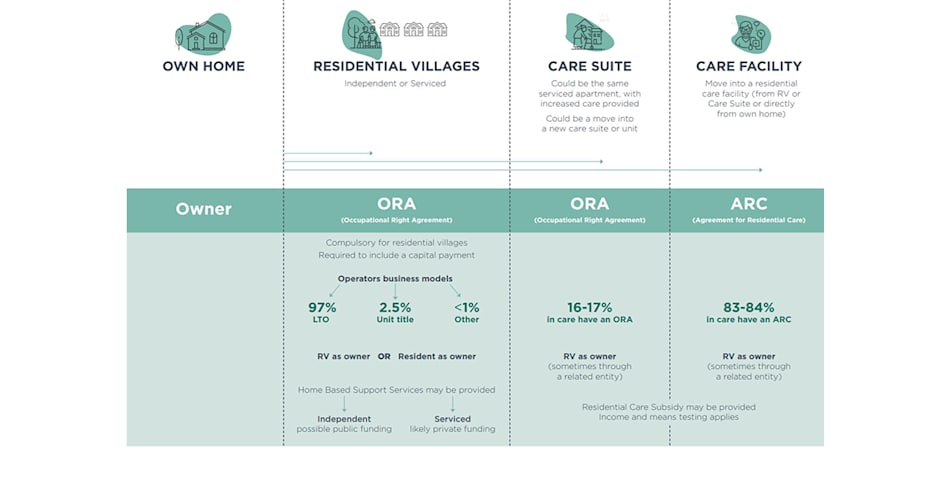Just like Australia, New Zealand retirement village operators are also looking down the barrel of tighter regulation that could seriously impact on providers’ cash flow.
Retirement Commissioner Jane Wrightson last week released a discussion paper on the country’s Retirement Villages Act 2003, its regulations and code of practice, noting there had been no significant reforms in 17 years.
The 40-page paper reviews the New Zealand retirement village legislative framework and makes a series of recommendations, including:
- A policy review to considers options to improve the resale and buy-back process including introducing a guaranteed timeframe for buy-backs, interest payable during vacant period, and allocation of any capital gain on sale between the resident (or their estate) and the operator. “The desire to provide certainty for residents would need to be considered alongside the operators’ business model. Consideration could be given to restricting any changes to larger, for-profit operators,” the paper states.
- A policy review to consider options to restrict the charging of weekly fees after a resident vacates a unit. “One option is to reduce weekly fees by 50 per cent after three months and to stop them entirely after six months,” it states.
Other areas up for review would be the:
- information about transferring into higher levels of care;
- the Code;
- complaints processes;
- resident welfare;
- consumer protections;
- disclosure agreements;
- and whether the definition of a retirement village needs to be modified to include a wider range of lifestyle developments.
However, New Zealand’s Retirement Villages Association (RVA) is pushing back, saying that while they look forward to working with the Commission for Financial Capability (CFFC) on the options raised, they have identified a number of inaccurate statements and incorrect assumptions in the paper.
“We are concerned the document does not reflect the reality of New Zealand’s retirement villages industry today,” John Collyns (pictured right), Executive Director of the RVA, said.
“We are concerned about some of the options canvassed such as the suggestion of a guaranteed timeframe for buy-backs and the allocation of capital gain on sale between the resident or their estate and the operator.”
While the RVA agrees there is always need for potential improvements at the margins – and more education and transparency by the industry – they do not believe the laws are in need of serious reform, he added.
“We support some minor amendments to the disputes process and the disclosure statement regime, but in general we consider the Act offers residents a high degree of protection and does not need to be reviewed,” John stated.
If implemented, John says effectively all 455 registered villages in New Zealand would be impacted by the regime changes.
“It would be difficult to have one set of conditions for one class of operator and a different set for another,” he said.
Over 45,000 New Zealanders currently live in retirement villages with the CFFC’s own research pointing to a 99% satisfaction rating.
Consultation on the paper closes on 26 February, 2021.










